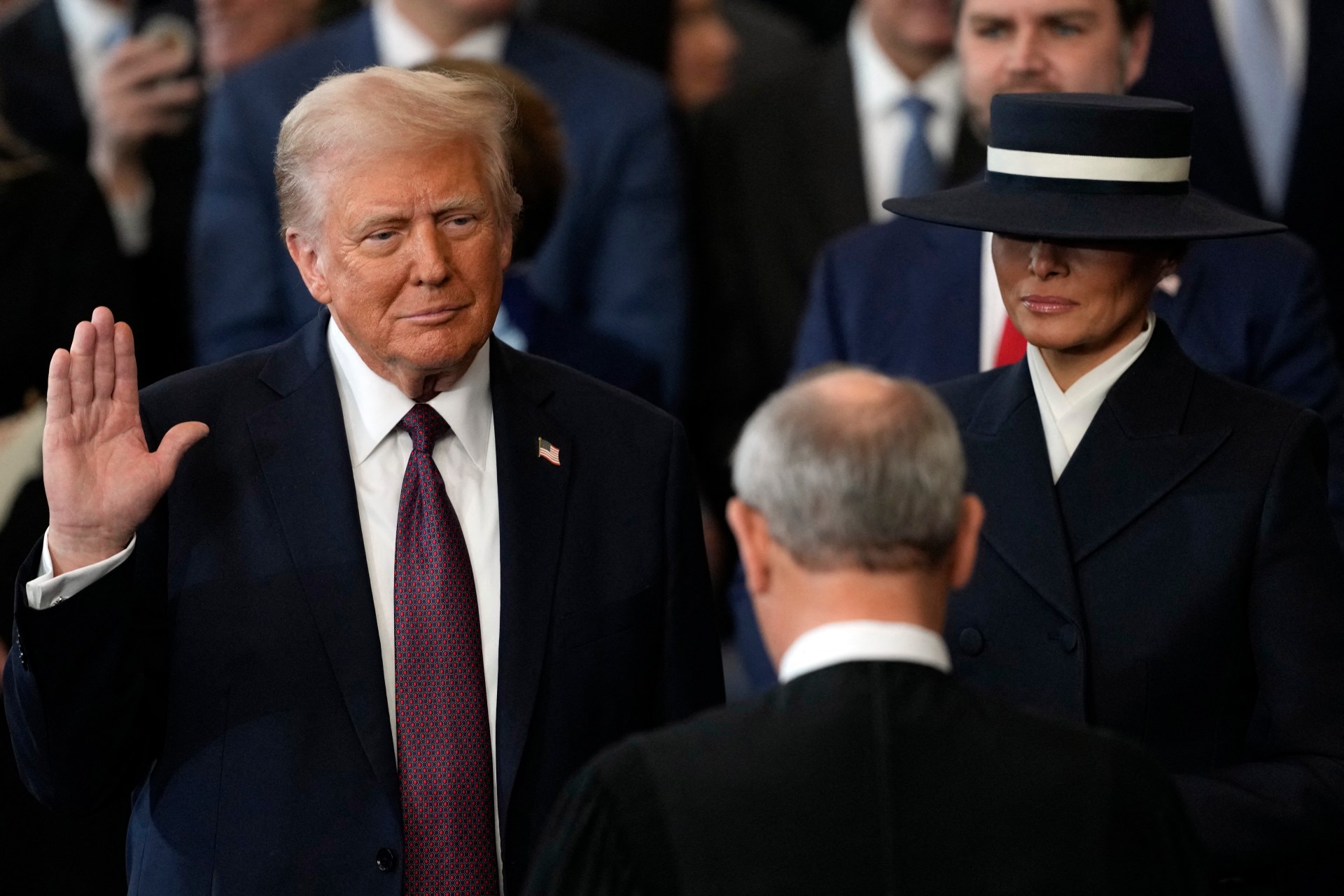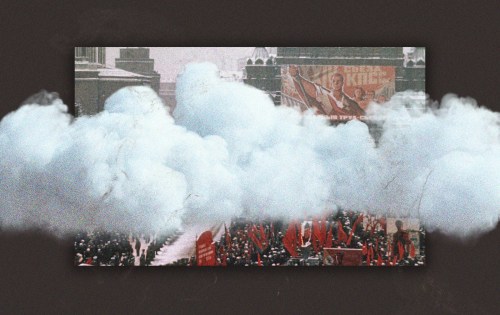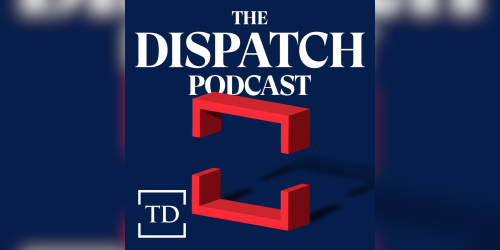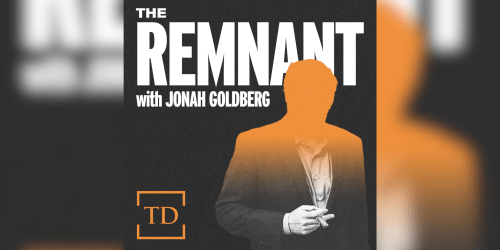Hello and happy Saturday. I hope you’re enjoying better weather than we’re having in the Ohio bureau and that you’ve avoided checking the status of your retirement accounts.
Back in February, Jonah Goldberg wrote that he was grateful for the stock mark because, while President Donald Trump could bully lawmakers and business leaders and journalists, “the markets are the exception.” The markets have weighed in on Trump’s “Liberation Day” tariffs, and the reviews are … not good. The Dow Jones dropped more than 1,600 points on Thursday and another 2,200 on Friday. The S&P 500 and Nasdaq dropped similarly. Stocks lost $6.6 trillion in value, creating the worst two-day drop in history.
Trump unveiled sweeping tariffs Wednesday from the Rose Garden at the White House. He announced a baseline tariff of 10 percent on most goods coming into the country, and he declared what he described as “reciprocal” tariffs on countries with whom we have a trade deficit. Funny thing, though. The reciprocity is not based on the tariff rates charged by our trading partners but based on our trade deficit with them. As business writer James Surowiecki figured out, the administration divided our trade deficit with a given country by its exports to the United States and claimed the resulting number was the rate that countries charge us. See Peter Gattuso’s fact check for a full explanation of the math.
Kevin D. Williamson complained that the whole process was just lazy—which would explain why the administration levied tariffs on a remote island territory that is home to lots of penguins and seals but no people—and he explained why trade benefits are often benign. He wrote: “U.S. firms and consumers buy a lot of tropical fruit and low-cost goods from firms in poor countries where the people do not buy a lot of Boeing products or $300 selvedge jeans made in the United States on account of their being, you know, poor.”
If you’ve listened to the Dispatch Podcast more than once or twice, you know about Steve Hayes’ affection for Spanish wines. On Wednesday, before the tariffs dropped, he attended a wine tasting—strictly for reporting purposes, of course—and spoke to some of the participants about how the coming tariffs would affect them. Importers had already been reducing orders in anticipation of new tariffs, and overseas purveyors are seeking out new markets. Many predicted hard times for U.S. businesses that depend on wine sales. “On the surface, it’d probably be hard to find a less sympathetic industry for tariff opponents to focus on than those in the wine importing business,” Steve wrote. “Nobody’s going to shed any tears for the rich guy with a French wine fetish whose $500 bottle might soon cost $600. But while it’s true that fine wine collectors and those who sell to them can adjust to higher costs, many smaller companies that work in the wine business cannot.”
In the G-File, Jonah walked through one example showing how the tariffs are impractical. If a company like Nike were to make its shoes in the United States instead of, say, Vietnam, well, it would create a few jobs here, but Americans would be paying more for sneakers and Vietnam’s economy would suffer. And then he pulls back and looks at the wider ramifications. “This dynamic will apply to electronics, clothes, auto parts, and other goods Vietnam produces,” he wrote. So by following through on this plan, we will have dealt a devastating blow to Vietnam’s economy, which will make any chance of pulling Vietnam out of China’s economic and strategic orbit infinitely more difficult. Why should the Vietnamese believe they are better off aligning with us, when aligning with us has led to this?”
Meanwhile, in Boiling Frogs, Nick Catoggio tried—really, really hard—to find an upside to angering our trade partners and jolting the markets. He found a couple, namely that all the backlash is likely to make free trade more popular, and that it might inspire Congress to reclaim its authority over trade policy. But those pale in comparison to what the moves say about America and its place in the global order.
There’s too much rot in the American character to believe that our country can sustain the will, clarity, or cunning to defeat an enemy as formidable as modern China. On the contrary, from threatening near-abroad satellites like Greenland to pointlessly offending allies like Canada to declaring a global trade war that will isolate the United States, Trump in his first 75 days has done more to strengthen Beijing than any president in decades.
Moronic, groin-punching American authoritarianism will not solve Chinese totalitarianism. The silver lining of “Liberation Day” is that the whole world understands that now and can proceed accordingly.
On that cheery note, thanks for reading and have a good weekend.
Joe Biden and Barack Obama were hardly the first Democratic presidents to be tempted or tortured by the comparison to Roosevelt. While Bill Clinton was always more interested in the Kennedy mystique—a young president, generational change, and sex, lots of sex—and Jimmy Carter was decidedly humble in his ambitions, Lyndon Johnson carried FDR’s legacy around like a monkey on his back. Everything Johnson did in his Great Society misadventure was haunted by comparisons to the New Deal. What none of Roosevelt’s would-be imitators among his Democratic heirs ever seriously considered, though, was making a run at the one thing that sets FDR apart from every other president: defying George Washington’s example and serving more than two terms.
It is time—well past time—to stop making excuses for Americans: for Americans’ cruelty, for Americans’ selfishness, for Americans’ childish insistence on being led by their resentment and by their lowest instincts. Trump did not trick Americans into electing him—there never has been, and never could be, any question about what sort of man he is: What else could you make of a thrice-married serial bankrupt borderline illiterate fantasist who before the presidency was best known for having appeared in a reality show franchise, a short string of pornographic films, and however many pro-wrestling programs? What new depths are there to be plunged by Donald Trump, who ended his last term in office with an attempted coup d’état?
What’s really going on with all of this third-term talk? Beyond the glee with which Donald Trump and his team greet the chance to make his opponents’ heads explode, the conversation may have more to do with how Bannon is positioning himself as a potential successor to the president. Before you laugh, it’s worth remembering that in the Conservative Political Action Conference’s annual straw poll for the next presidential election, Vance was the overwhelming favorite at 61 percent. In second place at 12 percent? Bannon.
Best of the Rest
Who’s Afraid of Frank Lloyd Wright?
If ‘America First’ applies to architecture, why don’t its acolytes prioritize the country’s greatest builder?
Three Big Reasons to Doubt Trump’s Tariff-Driven Investment ‘Boom’
Companies tend to overpromise and underdeliver, while higher costs and uncertainty could trigger a retreat.
A Glimmer of Hope in Gaza
Anti-Hamas protests in the besieged strip should be a cause for optimism.
Government Tools for Handling Classified Communications, Explained
What are the approved methods and means of communicating securely?
The Amnesiac Politics of American Leftists
To credibly critique the right, leftists need to critique themselves.
Senate Stammers Toward Reining In Trump’s Tariffs
But most Republicans seem to be in his corner.
Aliens and Enemies
What happened to due process?
Are We Liberated Yet?
Tariff like it’s 1889.
The Guinness World Record of Self-Sabotage
Down goes the Dow.



















Please note that we at The Dispatch hold ourselves, our work, and our commenters to a higher standard than other places on the internet. We welcome comments that foster genuine debate or discussion—including comments critical of us or our work—but responses that include ad hominem attacks on fellow Dispatch members or are intended to stoke fear and anger may be moderated.
With your membership, you only have the ability to comment on The Morning Dispatch articles. Consider upgrading to join the conversation everywhere.